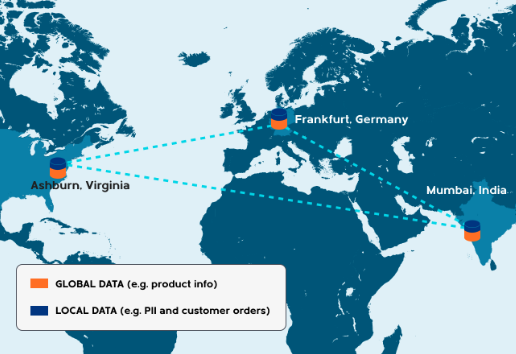pgEdge Offers Distributed Database for the Edge

A startup based in Alexandria, Va., emerged from stealth this week claiming to advance the state of edge database processing. Named pgEdge, the firm has created a fully distributed database built on the open-source PostgreSQL database, and it says it’s ready to scale out resources at multiple edge nodes worldwide for content delivery networks (CDNs), software-as-a-service suppliers, e-commerce providers, and global enterprises.
"We founded pgEdge to provide an open Postgres-based distributed database platform to meet the demands of today's modern applications: always on, always global, and super responsive," stated Phillip Merrick, co-founder and CEO of pgEdge, in a press release.
PostgreSQL Deep Bench
pgEdge’s founders are experts in PostgreSQL. CEO Merrick founded multiple companies, including EnterpriseDB, which offers software and services based on PostgreSQL. He also has been active in advising startups, and he led the revamping of Fugue, a cloud security firm now owned by secure development software vendor Snyk.
Co-founder and CTO Denis Lussier co-founded and served as chief architect of EnterpriseDB and worked as a product manager in AWS’s Postgres Engines Group. He has been chief architect in a range of companies that specialize in open source development for enterprise applications.

pgEdge founders Phillip Merrick (left) and Denis Lussier. Source: pgEdge
Why PostgreSQL
PostgreSQL has several features that made it particularly attractive for pgEdge’s purposes. It provides an object-relational database, which means it can act as both a relational database and an object-oriented data store. Simply put, this makes PostgreSQL more adaptable for developers looking to create complex objects and to work with a wider variety of data types than some other popular SQL systems.
PostgreSQL also has been widely adopted for its functionality and performance in large enterprise networks. An extension called Spock provides replication across multiple nodes.
pgEdge worked with PostgreSQL and Spock to create a database optimized for high availability at the edge of global networks. The product can improve performance of applications such as software-as-a-service or e-commerce by enabling data to be stored close to end users.
Interestingly, pgEdge also supports regulatory requirements that mandate that data reside in a particular geography. A “geo-shard” feature allows specified data to stay local while supporting global database interactions.

pgEdge ensures data residency. Source: pgEdge
pgEdge has made the source code for its product completely compatible with open source PostgreSQL and Spock, which is another advantage for developers.
Two Forms, One Solution
The startup’s solution comes in two forms: pgEdge Cloud is a fully managed database-as-a-service (DBaaS) designed to provision and orchestrate a pgEdge cluster within AWS, Azure, and Google Cloud zones worldwide. pgEdge presently has access to 100 of these zones, management says. pgEdge Cloud is available in a limited private beta program and is set for general availability in the second half of 2023.
A second version is pgEdge Platform that is downloadable for hosting on premises or within customers’ AWS, Azure, or Google Cloud environments. This is the developer version and is presently available in open beta with free download, though support subscriptions are required for enterprise use.
A few customers are in the process of adopting pgEdge, including PublicRelay, a media analytics firm; and online eyewear provider Zenni Optical. The company anticipates pgEdge’s use by content delivery networks (CDNs), including the likes of Akamai (Nasdaq: AKAM), Cloudflare (NYSE: NET), and Fastly (NYSE: FSLY).
The Age of Distributed Cloud Databases
pgEdge enters a market teeming with competition, including firms such as AWS, Oracle (NYSE: ORCL), and Microsoft (Nasdaq: MSFT), as well as Cockroach Labs, Couchbase (Nasdaq: BASE), and Yugabyte, to name just a few of dozens.
Most of these companies have cloud-native distributed database solutions as well as answers to the PostgreSQL challenge. Cockroach, for instance, claims to improve on limitations of the open-source DBMS. Yugabyte claims to be compatible with “the majority of PostgreSQL syntax.”
The proliferation of solutions points to growing demand for distributed cloud DBMSs. “Modern databases are nothing short of a requirement for successful digital transformation,” said Couchbase CEO Matt Cain on the company’s recent earnings call. He noted that the industry is in the process of a “generational rethink of the database market.”
pgEdge has garnered $9 million in seed financing led by Sands Capital Ventures and Grotech Ventures.




















